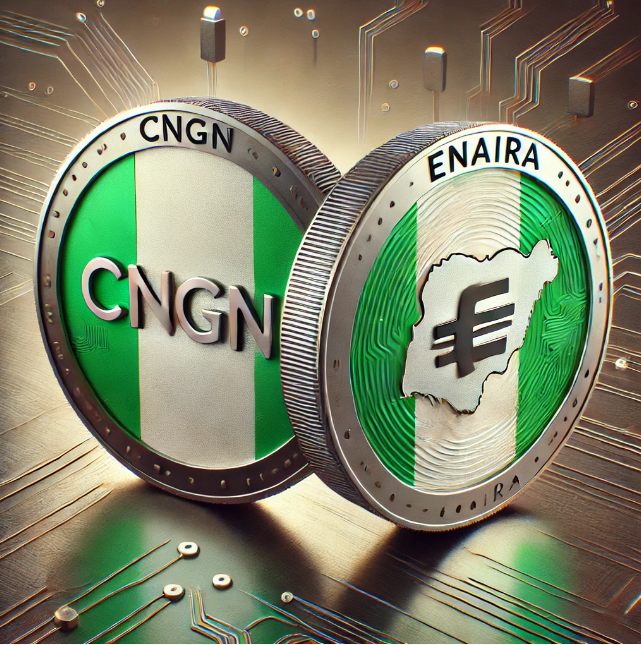Nigeria is set to introduce its first-ever licensed stablecoin, cNGN, in a move that could reshape the country’s financial ecosystem and accelerate crypto adoption. Reports confirm that the Central Bank of Nigeria (CBN) and the Securities and Exchange Commission (SEC) are backing the initiative, making cNGN the country’s first compliant digital currency.
The arrival of cNGN marks a significant shift in Nigeria’s approach to digital assets. Unlike volatile cryptocurrencies, stablecoins are pegged to fiat currencies, offering price stability while maintaining the efficiency of blockchain transactions. cNGN is designed to facilitate remittances, payments, and trading, giving users an alternative to traditional banking systems.
Nigeria’s First Licensed Stablecoin Set for Approval
According to Adedeji Owonibi, a Director at cNGN, the stablecoin is currently undergoing regulatory incubation with the SEC. While final approval is pending, cNGN has already been listed on licensed Nigerian exchanges, including Quidax and Busha, where users can soon trade and transact with the digital currency.
Developers of cNGN believe that its launch will bring regulatory clarity and stability to Nigeria’s digital asset industry. The rollout is expected to begin this month, making the stablecoin available on partner exchanges and financial institutions across the country. By integrating cNGN into the local financial system, businesses and individuals will have access to secure, fast, and low-cost transactions.
Why Nigeria is Embracing Stablecoins
Nigeria has emerged as a global leader in cryptocurrency adoption, driven largely by economic challenges. The declining value of the naira has pushed many Nigerians toward stablecoins like Tether (USDT) as a hedge against inflation. cNGN could provide a more localized and regulated alternative, reducing reliance on foreign stablecoins while maintaining financial stability.

The launch of cNGN also draws comparisons to the eNaira, Nigeria’s central bank digital currency (CBDC) introduced in 2021. However, while eNaira is fully controlled by the CBN, cNGN operates as a privately-issued stablecoin under regulated oversight, giving it decentralized flexibility while still aligning with national financial policies.
The Changing Regulatory Landscape
Nigeria’s stance on digital assets has evolved significantly in recent years. In February 2021, the CBN banned financial institutions from processing cryptocurrency transactions, citing risks of fraud, money laundering, and financial instability. This led to a surge in peer-to-peer (P2P) trading, as crypto users sought alternative transaction methods.
However, in December 2023, the CBN reversed its ban, allowing banks to provide services to licensed crypto platforms. This marked a turning point for the industry, signaling greater regulatory acceptance.
The SEC has taken a more proactive approach, introducing a regulatory incubation program to monitor crypto projects like cNGN. This initiative aims to protect investors, reduce fraud, and align digital assets with Nigeria’s financial laws.
Financial Inclusion and Business Integration
Beyond providing stability for crypto users, cNGN could play a key role in financial inclusion. According to Chimezie Chuta, Founder of the Blockchain Nigeria User Group, the stablecoin could bridge the gap for the unbanked population, allowing more Nigerians to participate in digital finance without needing traditional banking services.
Businesses are also expected to benefit, as cNGN offers:
- Lower transaction fees compared to traditional payment gateways.
- Faster settlements for merchants and service providers.
- Seamless integration with crypto-friendly businesses that accept cNGN as a currency.
What’s Next for cNGN and Crypto in Nigeria?
The upcoming launch of cNGN could redefine digital payments in Nigeria, offering a regulated and stable alternative to volatile cryptocurrencies. Its success will largely depend on:
- Final SEC approval and regulatory support.
- Adoption by businesses, merchants, and financial institutions.
- User trust and willingness to transition from traditional banking to digital assets.
As Nigeria continues to position itself as a major player in the global crypto space, the introduction of cNGN marks an important step toward a more regulated and inclusive financial future. Whether this stablecoin can gain widespread acceptance remains to be seen, but it undoubtedly represents a bold move in the evolution of Nigeria’s digital economy.





